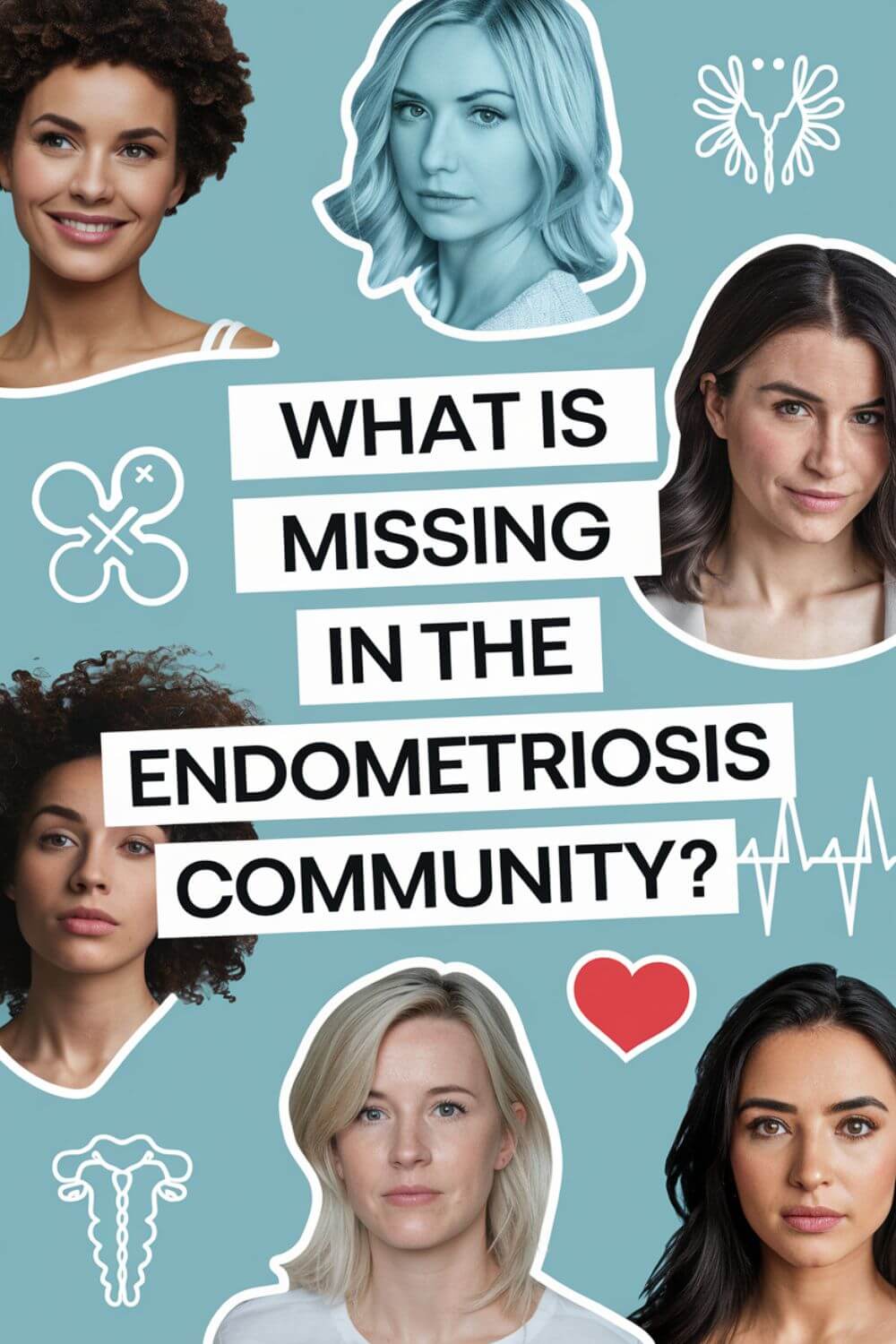What is Missing in the Endometriosis Community?
What is missing in the endometriosis community? Well, in the vast landscape of endo support, a crucial element always remains underrepresented – guidance for male partners like myself who navigate their loved one’s chronic condition. The endometriosis community often overlooks the unique challenges faced by male partners, leaving them without support and resources.
As a husband to a woman battling both stage IV deep infiltrating endometriosis and fibromyalgia, I’ve experienced firsthand the emotional and practical struggles that accompany these diagnoses.
Witnessing my wife’s transition from a vibrant dancer to someone grappling with chronic pain and mental health challenges has been heart-wrenching. The lack of resources for partners like myself inspired me to create a platform dedicated to supporting men in similar situations.
Discover more insights and guidance in the sections below.
- Endo-Tool: Endometriosis for Men
- The Hidden Burden of Supporting Partners with Endometriosis
- Understanding Endometriosis from a Partner’s Perspective
- Why Caregiving Men Are Left Behind in the Endometriosis Community?
- The Impact of Endometriosis on Relationships
- Strategies for Male Partners to Support Their Loved Ones
- Breaking the Silence: Stories from Male Caregivers
- What Men Can Do to Advocate for Change in the Endometriosis Community?
- The Importance of Recognizing Male Caregivers’ Needs
- Concluding What is Missing in the Endometriosis Community
Endo-Tool: Endometriosis for Men
If you’re here seeking a deeper connection and understanding of your partner’s struggles with endometriosis, I offer a special resource: a FREE chapter of my book, available upon subscription. Beyond this chapter, I provide highly personal and valuable content through my emails—far surpassing what any article can cover.
Furthermore, my emails share heartfelt insights, practical tips, and stories of navigating chronic illness together. You will also receive a substantial discount on the entire book, plus access to occasional freebies, printables, and exclusive offers designed to enhance your journey.
The first chapter alone contains all the comprehensive medical knowledge about endometriosis, including:
- What is endometriosis?
- What are the symptoms?
- What causes endometriosis?
- What does endometriosis look like?
- What are the stages?
- What are the types?
- What is adenomyosis and how is it related to endometriosis?
- Why do some women develop severe endo and others don’t?
- Does endometriosis cause infertility?
- How is endometriosis diagnosed?
- Do types and stages affect the treatment?
- Recurrence of endometriosis after excision surgery.
FREE Chapter of “Endo-Tool”
Endometriosis e-Book for Men
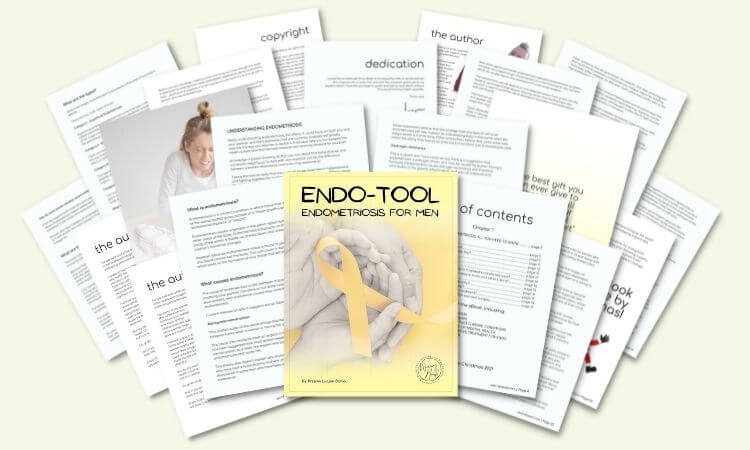
The Hidden Burden of Supporting Partners with Endometriosis
Supporting a partner with endometriosis is a complex and often overwhelming journey for male caregivers. Unlike women, who have access to numerous communities and resources, male partners frequently struggle in silence, unable to express their feelings or find others who understand their challenges. This experience is uniquely isolating, and many men face immense emotional stress, often compounded by societal expectations to be stoic and unyielding.
What is missing in the endometriosis community is a robust recognition and support system for the unseen struggles of caregiving men. This section explores the emotional toll, hidden obstacles, and unmet needs of male partners, shedding light on the critical importance of their role.
Emotional Toll on Male Partners
For many male caregivers, the emotional toll of supporting a partner with endometriosis is profound. They witness their loved one in chronic pain, often feeling powerless to help. The emotional burden can lead to anxiety, depression, and a deep sense of isolation, as societal norms discourage men from expressing vulnerability.
Navigating Unseen Challenges
Everyday life becomes a series of unseen challenges for men supporting women with endometriosis. From managing household responsibilities to providing emotional and physical support, male partners often take on roles they were unprepared for, facing judgment or misunderstanding from others.
Lack of Community and Support Resources
While women with endometriosis have numerous support groups and forums, resources specifically designed for male caregivers are rare. This leaves men feeling disconnected and unable to seek guidance, ultimately impacting their ability to provide effective support.
Mental Health Strain and Stigma
Male caregivers often face significant mental health challenges, including anxiety, depression, and burnout. Unfortunately, the stigma surrounding male vulnerability and mental health issues can prevent them from seeking help or admitting our struggles.
Balancing Personal Needs with Caregiving
Finding a balance between caring for a partner and tending to one’s own physical and emotional needs is a challenge many male caregivers face. This delicate balancing act can lead to resentment, fatigue, and feelings of neglect, requiring understanding and support from the broader community.
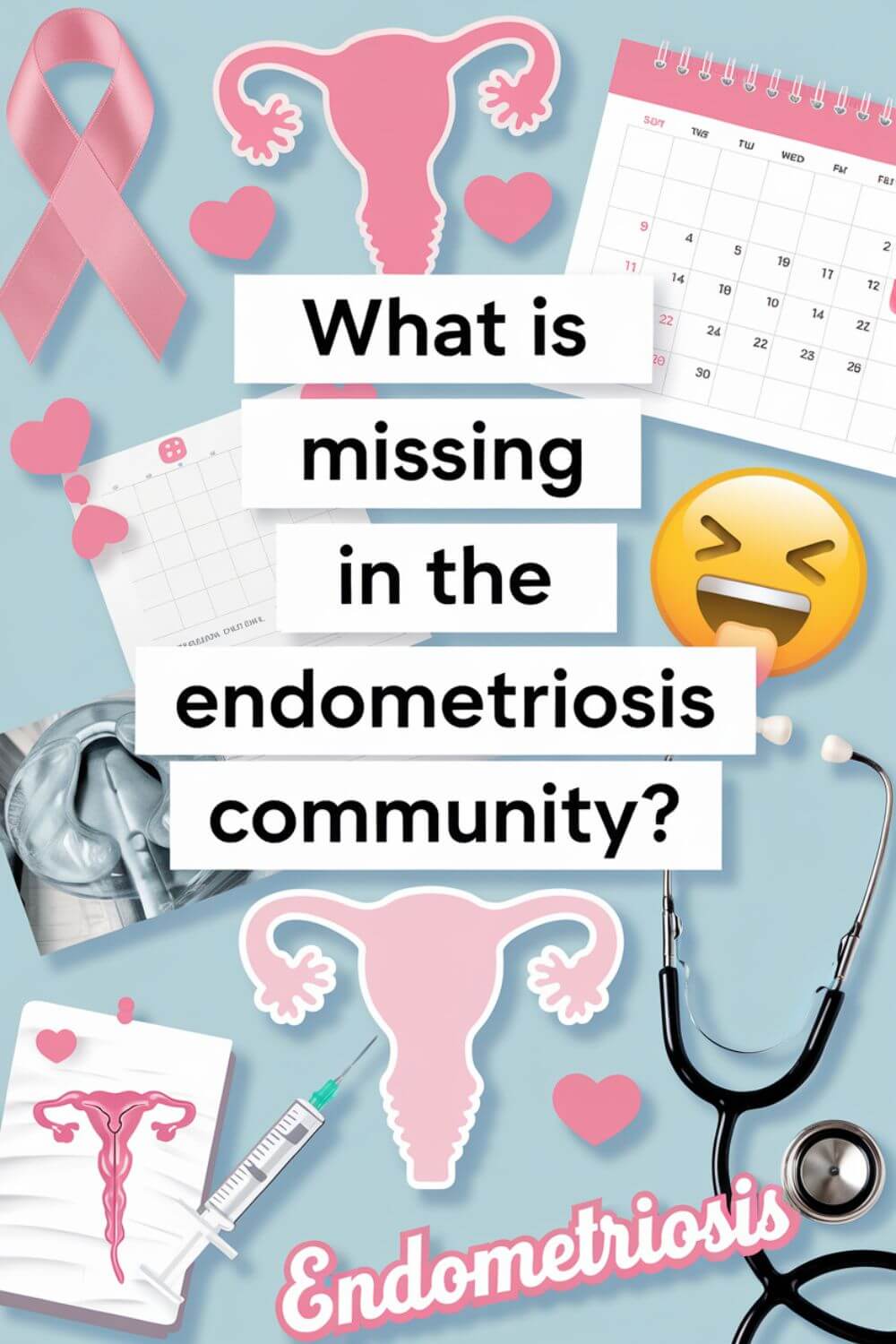
Understanding Endometriosis from a Partner’s Perspective
When a loved one is diagnosed with endometriosis, it becomes a shared journey that impacts both partners. That is what many doctors and society fail to realize.
For male caregivers, like me, this journey often starts with a deep sense of confusion and helplessness, compounded by a lack of resources tailored to our experiences. Unlike our partners, who can often connect with established support networks, men must navigate their roles with limited guidance and knowledge.
What is missing in the endometriosis community is a focus on how male partners can understand and support their loved ones through empathy, education, and patience. This section delves into the transformative journey of learning, growing, and fostering a partnership that endures the challenges of chronic illness.
Learning About Endometriosis Together
The journey begins with education. Male partners must take the time to understand the complexities of endometriosis, from its symptoms to its treatment options. By learning together, couples can better advocate for their needs, create a shared sense of purpose, and combat the isolation that endometriosis often brings.
Building Empathy and Patience
Empathy is the cornerstone of any supportive partnership. Male caregivers must recognize the physical and emotional toll of endometriosis on their partners, developing a deep sense of patience as they navigate unpredictable symptoms, pain, and emotional fluctuations. Empathy fosters a safe space for communication and growth.
The Role of Communication in Coping
Effective communication is essential for coping with the challenges of endometriosis. For male partners, learning to listen without judgment, express their own feelings, and work together to find solutions can strengthen their relationship and provide vital emotional support for their partner.
Supporting Each Other’s Growth
A relationship touched by chronic illness can still be a place of growth and joy. By supporting each other’s dreams and encouraging resilience, couples can find ways to thrive despite the difficulties imposed by endometriosis, redefining what it means to grow together.
Facing Sexual Intimacy Challenges
Endometriosis can have a profound impact on sexual intimacy, creating challenges that test the strength of the relationship. For male partners, approaching these issues with compassion, patience, and a willingness to adapt is crucial for maintaining a healthy emotional and physical connection.
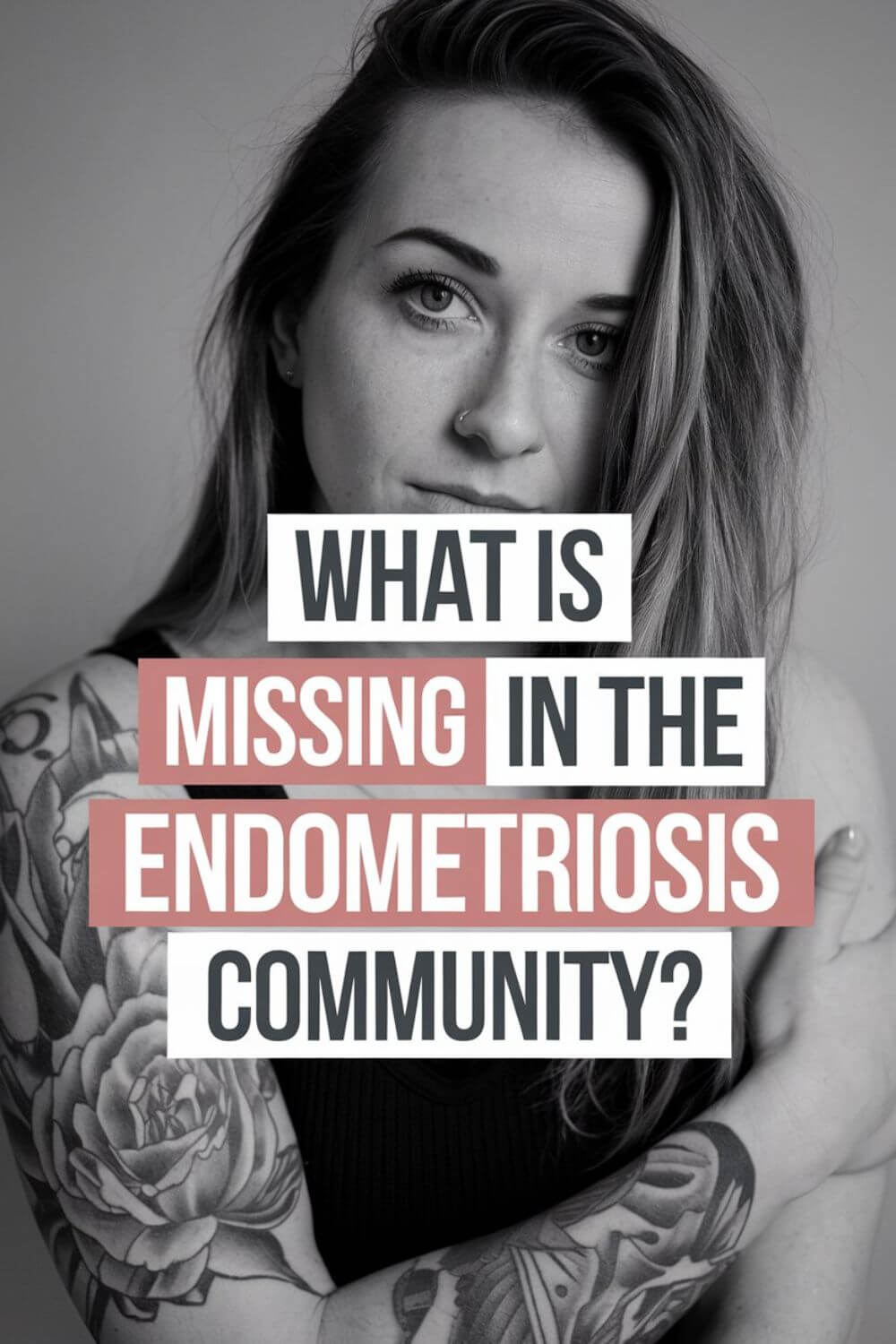
Why Caregiving Men Are Left Behind in the Endometriosis Community?
In the realm of chronic illness, caregiving men often find themselves forgotten. While much attention and resources are devoted to supporting women with endometriosis, the experiences, struggles, and needs of male partners are rarely addressed. This lack of acknowledgment stems from societal norms that place undue pressure on men to be stoic and strong, as well as a general lack of resources tailored to their unique journey.
What is missing in the endometriosis community is an inclusive focus on the challenges faced by male caregivers, ensuring that their voices are heard and their needs are met. This section examines the factors contributing to this gap and what can be done to bridge it.
Societal Expectations and Gender Norms
Traditional gender norms often prevent men from expressing their emotions or seeking help. Male caregivers may feel compelled to appear strong and unemotional, even when overwhelmed by the demands of supporting a partner with endometriosis. This expectation exacerbates their sense of isolation and makes it harder for them to access support.
Limited Male-Focused Resources
Despite the prevalence of endometriosis, there are few resources specifically designed to support the needs of male partners. This lack of targeted guidance leaves men without a roadmap for navigating the emotional and practical challenges of caregiving, often leading to feelings of helplessness.
Breaking Barriers to Seek Help
For male caregivers, reaching out for help often means breaking through barriers of pride, fear, and societal pressure. Encouraging men to seek support—whether through therapy, peer groups, or online forums—can help reduce their isolation and provide much-needed validation for their struggles.
Advocating for Greater Awareness
Men have a crucial role to play in raising awareness about the impact of endometriosis on partners and families. By sharing their experiences and advocating for more inclusive support systems, male caregivers can help ensure that the needs of both sufferers and their partners are recognized.
Encouraging Men to Share Experiences
Creating safe spaces for male caregivers to share their stories and connect with others in similar situations is vital. Sharing experiences can reduce feelings of isolation, provide practical coping strategies, and foster a sense of community that has long been missing for men in the endometriosis space.
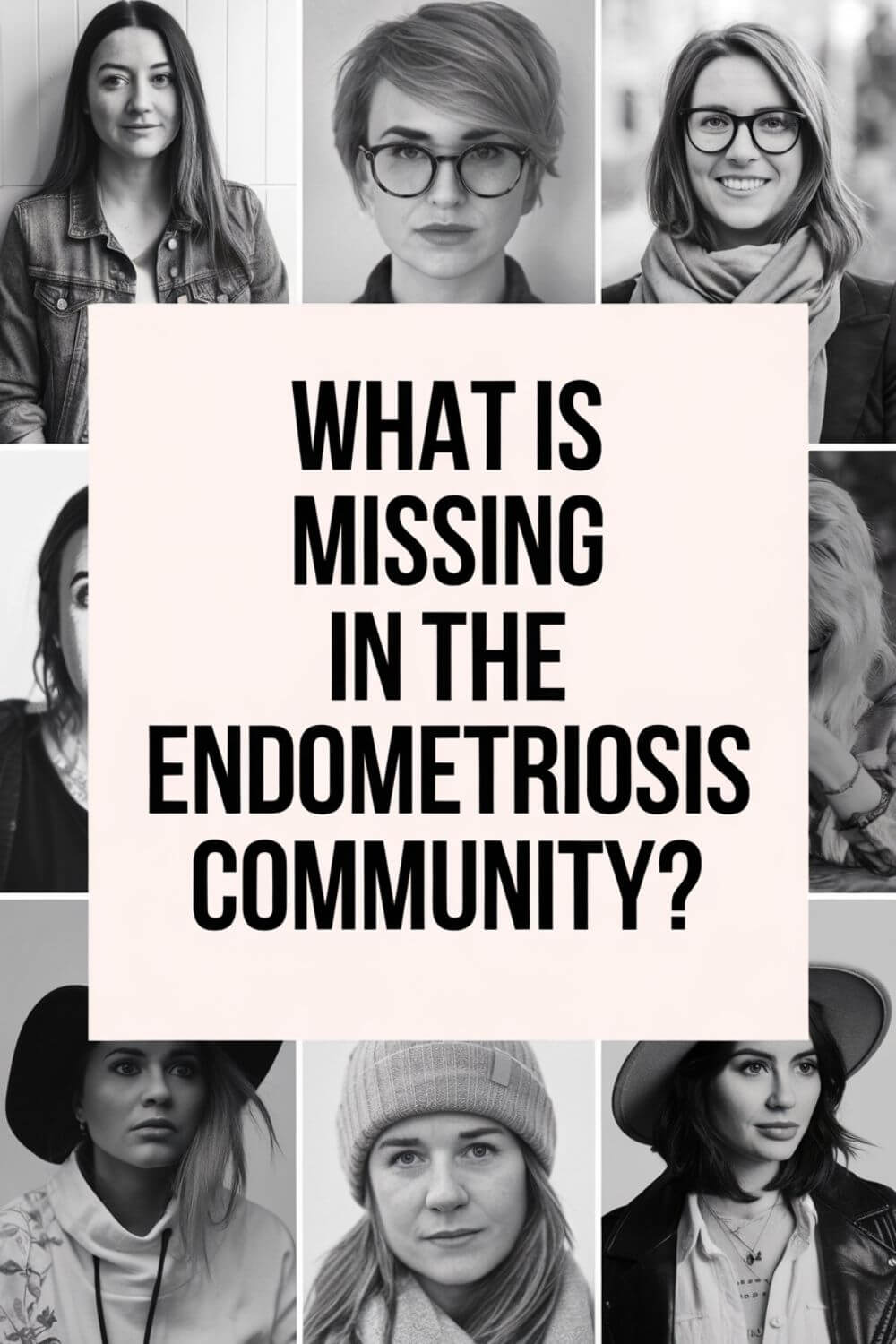
The Impact of Endometriosis on Relationships
Endometriosis doesn’t just affect the individual diagnosed; it alters the dynamics of their closest relationships. The chronic pain, fatigue, and emotional strain that accompany endometriosis can deeply affect couples, testing the strength of their bond. Male partners often face a unique set of challenges in their role as caregivers, leading to profound changes in their relationship.
What is missing in the endometriosis community is honest, open dialogue and support systems that help couples navigate these complex changes together. This section explores how endometriosis transforms relationships and what male partners can do to foster resilience and understanding.
Changes in Dynamics and Roles
The onset of chronic illness often shifts the balance of responsibility within a relationship. Male partners may find themselves assuming new roles—becoming caregivers, advocates, and emotional anchors—all while managing their own emotions. This shift can lead to stress, misunderstandings, and a need for constant adaptability.
Financial and Career Pressures
Supporting a partner with endometriosis often brings financial challenges, from medical expenses to lost income. Male caregivers may need to make career sacrifices or take on additional work to support their household, further compounding the stress of their caregiving role.
When the Partner Feels Like a Burden
Many individuals with endometriosis struggle with feelings of guilt, believing they are a burden on their partners. For male caregivers, navigating these difficult conversations and offering reassurance without dismissing their partner’s feelings is crucial to maintaining emotional intimacy and trust.
Coping with Emotional Distance
Chronic pain and fatigue can create emotional distance within a relationship, leaving both partners feeling isolated. For male caregivers, finding ways to bridge this distance—whether through open communication, shared activities, or professional counseling—can help maintain a sense of connection.
Managing Stress Together
Chronic illness brings a constant stream of stressors, but facing these challenges as a team can make a difference. By supporting each other through difficult times and finding healthy coping mechanisms, couples can build resilience and strengthen their bond despite the hardships posed by endometriosis.
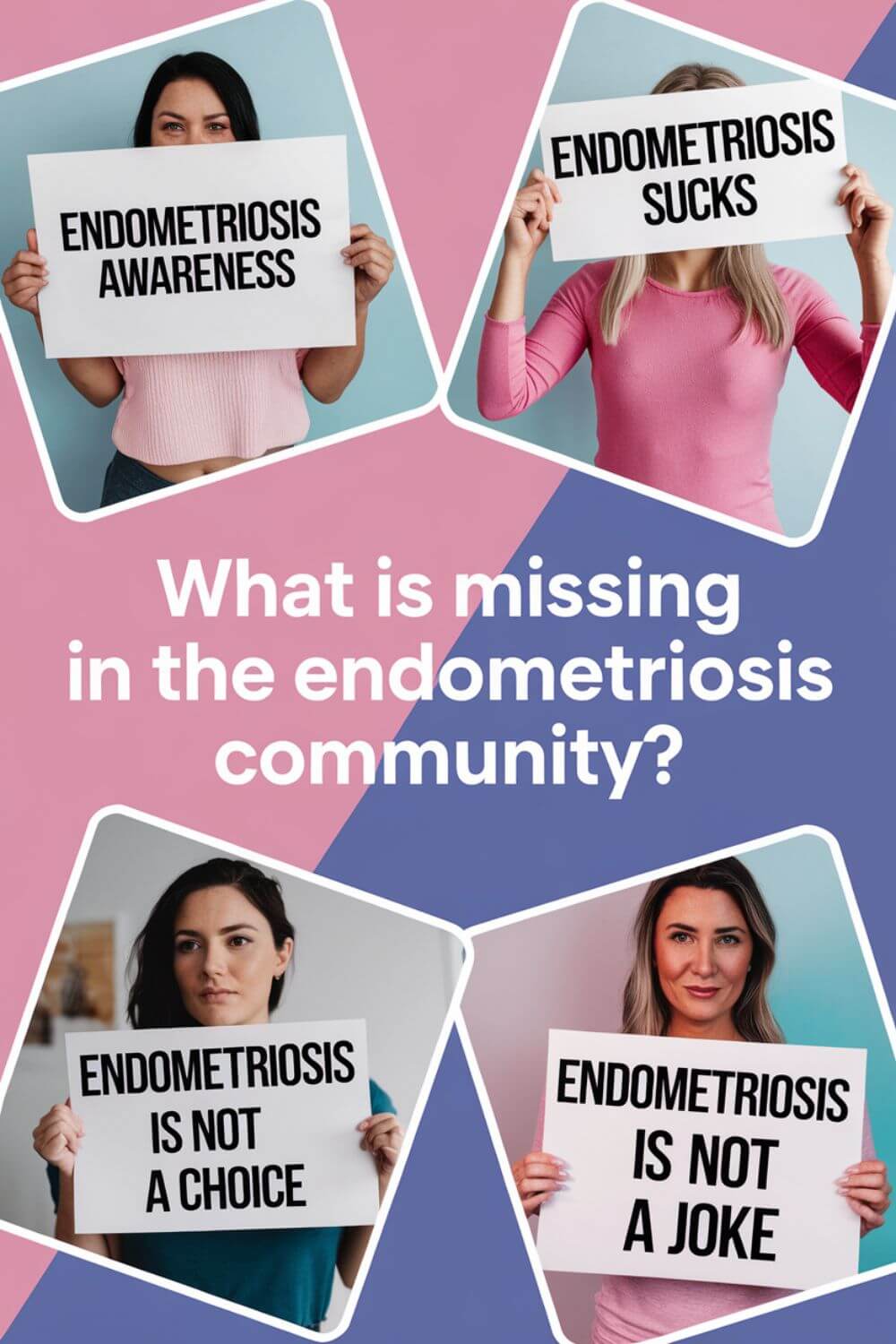
Strategies for Male Partners to Support Their Loved Ones
Supporting a partner with endometriosis is a journey that demands dedication, patience, and resilience. For male caregivers, finding effective strategies to provide support while maintaining their own well-being can be challenging, but it is crucial for both partners’ health and the strength of the relationship.
What is missing in the endometriosis community is a tailored approach that guides male partners through the complexities of caregiving, empowering them with practical tools and emotional resilience. This section offers strategies to help male partners navigate their roles while fostering a healthy and supportive environment.
Building a Support System
Creating a network of trusted friends, family members, and healthcare professionals is essential for male caregivers. This support system can offer a listening ear, practical help, and emotional relief, allowing men to better cope with the pressures of their caregiving role.
Practicing Self-Care as a Caregiver
Taking care of oneself is not a luxury; it is a necessity. Male caregivers must prioritize their own physical and emotional well-being through regular exercise, hobbies, mental health check-ins, and time for rest. Self-care ensures they have the strength and resilience needed to support their partner effectively.
Understanding Pain Fluctuations
Endometriosis symptoms can vary greatly from day to day, making it difficult to predict how a partner will feel. Male caregivers need to develop patience and adaptability, recognizing that plans may change and that their partner’s needs may shift without warning.
Encouraging Medical Advocacy
By becoming informed and involved in their partner’s medical care, male partners can play a vital role in advocating for better treatment options, supporting medical appointments, and ensuring that their partner’s concerns are taken seriously by healthcare professionals.
Finding Joy Amidst Challenges
Despite the challenges, it is important to seek out moments of happiness and connection. Small gestures, shared laughter, and focusing on the positives can help couples maintain their emotional bond and resilience, providing a source of strength in difficult times.
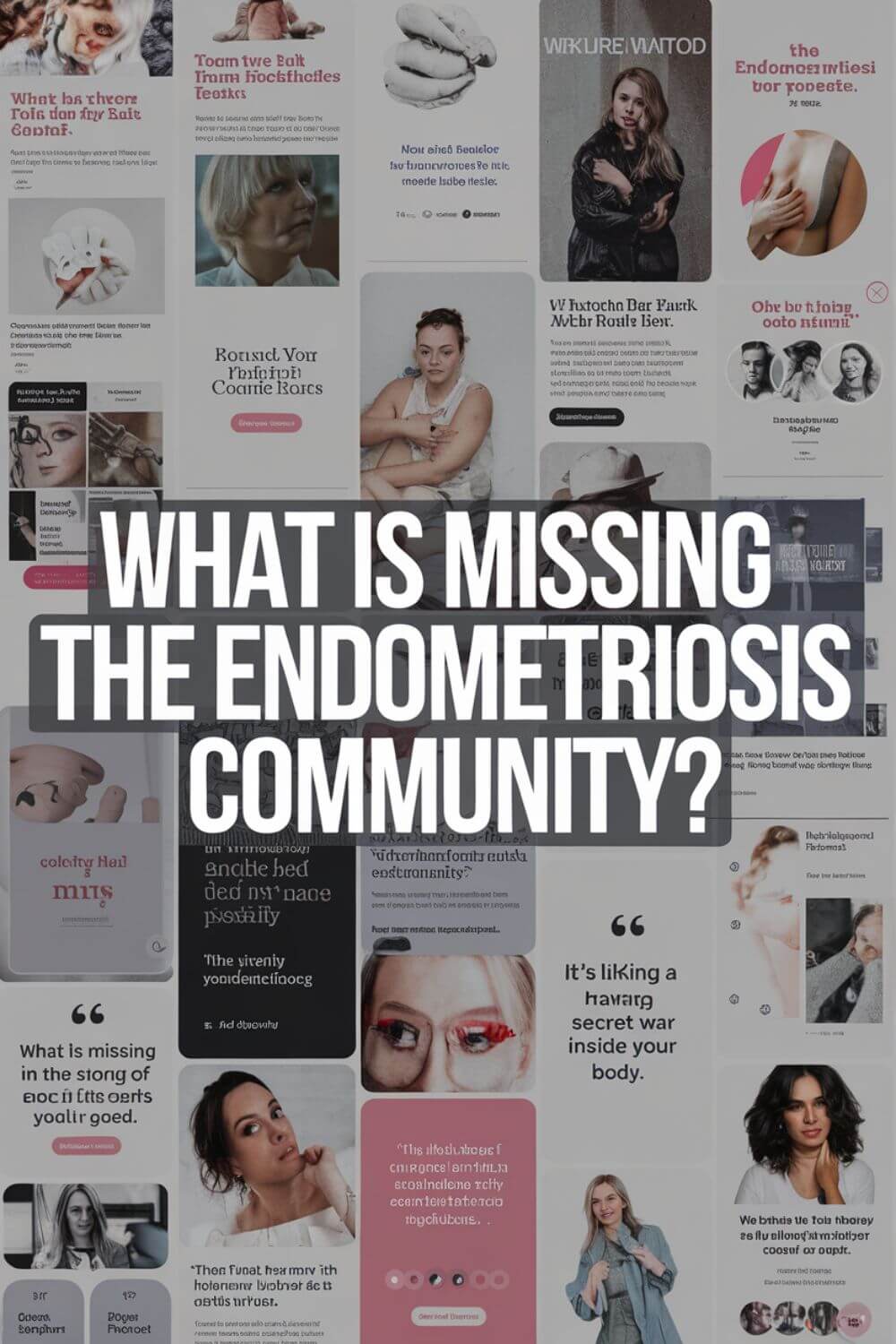
Breaking the Silence: Stories from Male Caregivers
Male caregivers supporting partners with endometriosis often feel voiceless in a community that primarily focuses on the affected women.
Sharing personal stories is a powerful way to bridge this gap, offering validation, solidarity, and practical insights for others in similar situations. When men speak openly about their experiences, it not only reduces isolation but also fosters a sense of belonging.
What is missing in the endometriosis community is a platform that amplifies the voices of male caregivers, allowing their stories to inspire and guide others. This section focuses on the transformative power of storytelling, creating a network of shared experiences and genuine connections.
Sharing Personal Journeys
Telling their stories allows male caregivers to reflect on their experiences, challenges, and growth. By sharing openly, they give others permission to acknowledge their own struggles, creating a safe space for vulnerability and mutual support. Personal narratives can break down barriers and normalize the difficulties that many face in silence.
Creating a Community for Men
Establishing spaces where male caregivers can connect—online forums, support groups, or community events—creates a vital lifeline for those feeling isolated. Within these communities, men can exchange advice, share their emotions, and build lasting bonds that provide comfort and strength.
Offering Hope and Perspective
Hearing from others who have walked a similar path can offer hope and perspective, showing that even in difficult times, it is possible to find resilience and joy. Sharing stories of perseverance and love can motivate others to continue supporting their partners and themselves.
Celebrating Resilience and Love
The journey of caregiving often reveals incredible strength, patience, and dedication. Celebrating these qualities reminds male caregivers that their efforts are meaningful and appreciated, reinforcing their commitment to their loved ones.
Learning from Others’ Experiences
The experiences of others offer valuable lessons and coping strategies. By learning from those who have faced similar challenges, male caregivers can gain practical advice, emotional insights, and a greater sense of empowerment in their role.
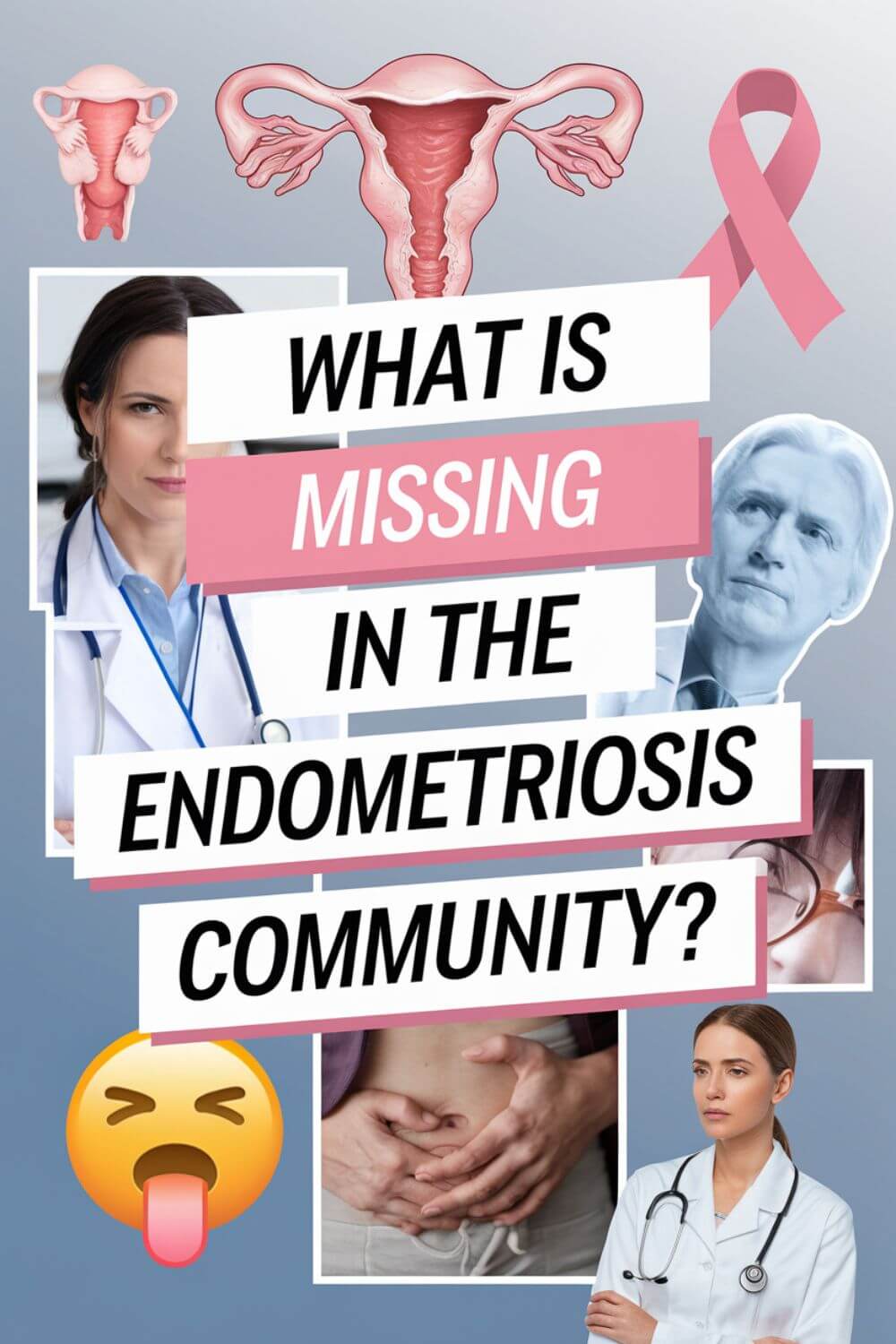
What Men Can Do to Advocate for Change in the Endometriosis Community?
Male partners hold a unique position within the endometriosis community, one that allows them to bring about meaningful change by advocating for better awareness, resources, and support systems. Their involvement can help shed light on the impact of chronic illness beyond the patient, highlighting the need for more inclusive solutions.
What is missing in the endometriosis community is a proactive push for male voices to be included in advocacy efforts, driving progress and support for all those affected by the condition. This section explores how men can become advocates for change, using their experiences to make a difference.
Raising Awareness Together
Men can work alongside their partners to raise awareness about endometriosis, sharing their stories with friends, family, and the public. By speaking openly, they can challenge misconceptions and increase understanding, fostering empathy and breaking down stigma around the condition.
Joining Advocacy Groups
Male caregivers can strengthen their impact by joining existing endometriosis advocacy groups. Their involvement ensures that the voices of partners and caregivers are heard, contributing to more comprehensive support systems and policies that address the needs of entire families.
Working with Healthcare Providers
Partnering with healthcare professionals can create a more inclusive care environment for endometriosis patients and their partners. Male caregivers can help bridge communication gaps, provide insight into their loved one’s experiences, and advocate for more compassionate, patient-centered care.
Educating Friends and Family
Educating friends, family, and social networks about the realities of endometriosis can change how the condition is perceived and treated. Male partners can play a key role in spreading awareness, reducing isolation, and creating a more supportive community for those affected.
Pushing for Policy and Research Changes
To create lasting change, male partners can get involved in policy advocacy and research initiatives, pushing for increased funding, better treatment options, and a deeper understanding of endometriosis. Their unique perspectives can help shape policies that better address the needs of sufferers and their families.
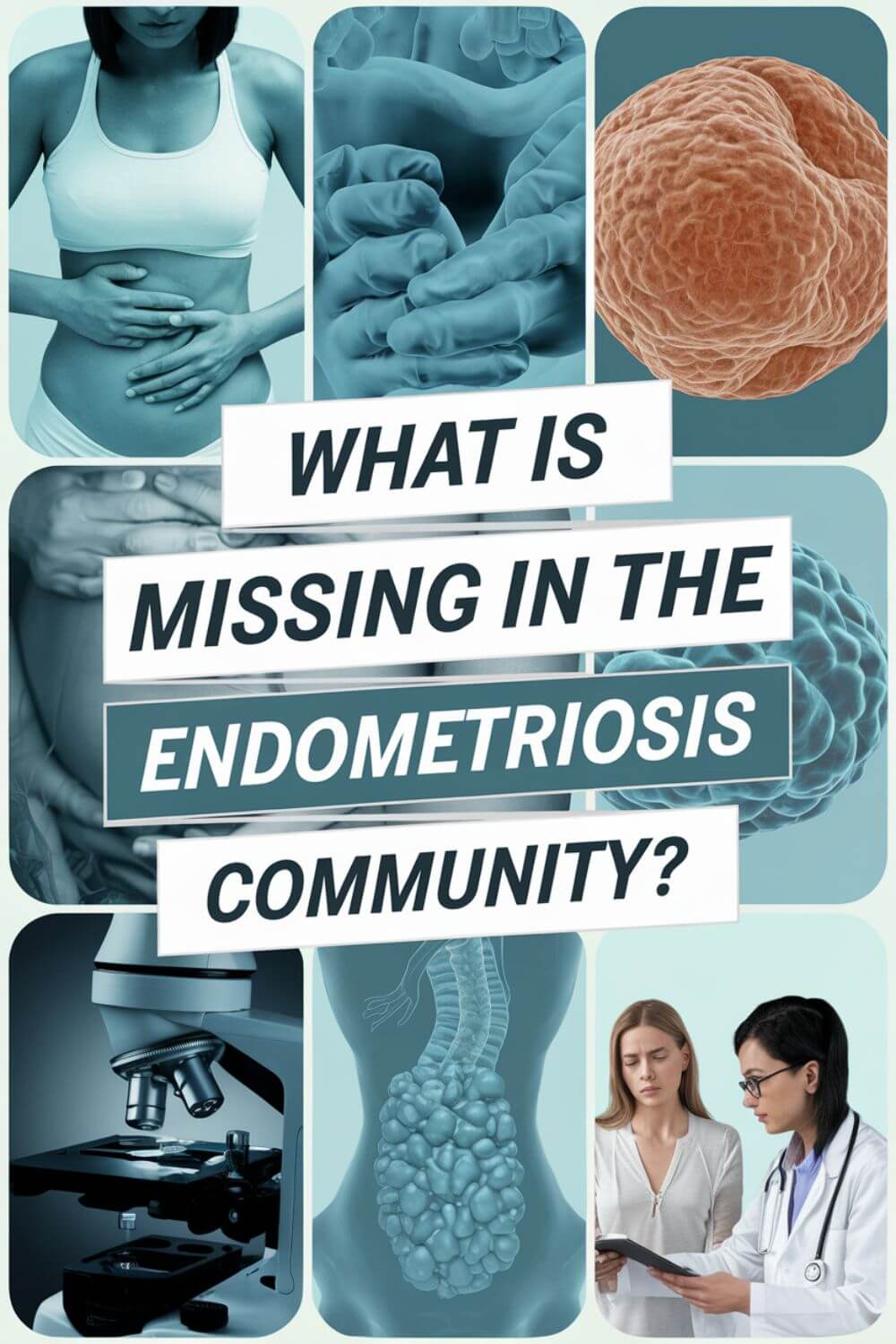
The Importance of Recognizing Male Caregivers’ Needs
While much of the endometriosis community focuses on supporting those diagnosed with the condition, it is equally important to recognize the needs of their male partners.
Caregiving takes an immense emotional, physical, and mental toll, and male caregivers often find themselves without adequate resources or acknowledgment. Providing targeted support for these caregivers not only improves their well-being but also strengthens their ability to support their partners effectively.
What is missing in the endometriosis community is a holistic approach that values the needs and challenges of male caregivers. This section explores the key areas where male caregivers need support and how addressing these gaps can make a lasting difference.
Emotional and Psychological Support
Male caregivers often experience anxiety, depression, and emotional burnout. Providing access to therapy, support groups, and peer networks where they can openly discuss their feelings can significantly alleviate these burdens and reduce isolation.
Work-Life Balance Adjustments
Juggling caregiving responsibilities alongside work commitments can be overwhelming. Employers should be encouraged to offer flexible working arrangements and understanding policies for employees caring for a chronically ill partner, reducing stress and allowing for a healthier work-life balance.
Access to Counseling and Peer Groups
Counseling services tailored to male caregivers’ unique experiences are essential. Peer groups can provide a safe space to share challenges, learn from others, and find strength through collective experiences, fostering a sense of community and validation.
Resources to Manage Burnout
Chronic caregiving without relief can lead to severe burnout. Providing tools, workshops, and strategies for self-care and stress management can help male caregivers maintain their physical and mental health, ultimately improving the care they can offer their partners.
Connecting with Others in the Same Role
Building networks where male caregivers can connect, exchange advice, and share their journeys creates a valuable support system. Knowing that they are not alone in their struggles can significantly alleviate feelings of loneliness and provide encouragement to keep going.
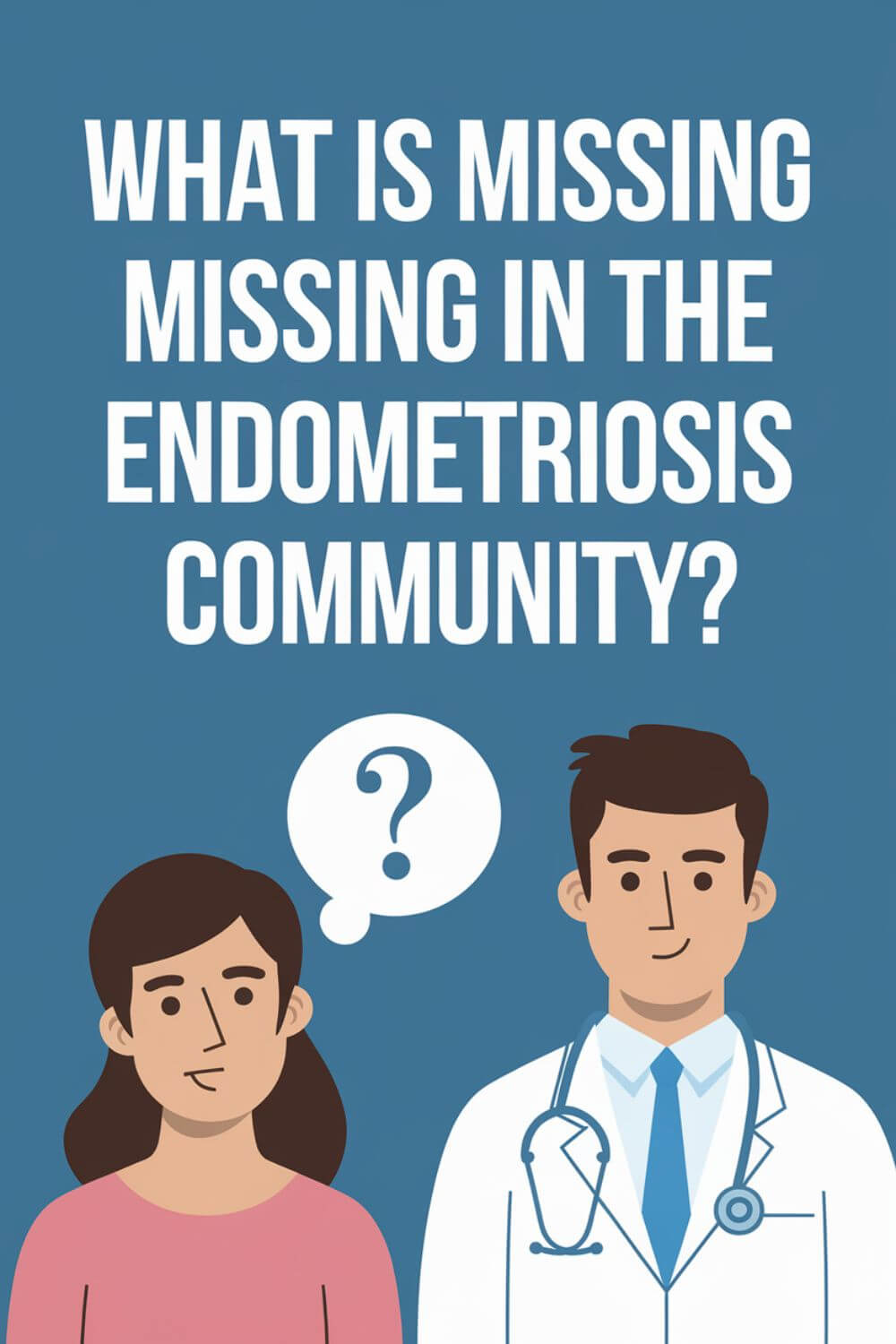
Concluding What is Missing in the Endometriosis Community
In the endometriosis community, male caregivers often go unseen, despite the immense emotional, physical, and mental demands placed on them. Recognizing their experiences and providing tailored support not only enhances their well-being but strengthens their ability to care for and connect with their partners.
By acknowledging and addressing their needs, we create a more inclusive community—one that values the voices, challenges, and unique contributions of everyone impacted by endometriosis.
When we empower male partners, we improve the lives of those they love and the community as a whole. Together, we can drive change by sharing our stories, listening with empathy, and advocating for comprehensive support systems that leave no one behind.
I encourage you to reflect on your journey, leave a comment to share your thoughts and connect with others in this space. Don’t forget to grab the “Endo-Tool: Endometriosis for Men” freebie to gain invaluable insights that truly make a difference in this journey!
Thank you for being here and for your strength in supporting one another. And remember—you are not alone. Stay hopeful and keep moving forward together.


About Me
Hi, I’m Lucjan! The reason why I decided to create this blog was my beautiful wife, who experienced a lot of pain in life, but also the lack of information about endometriosis and fibromyalgia for men…
